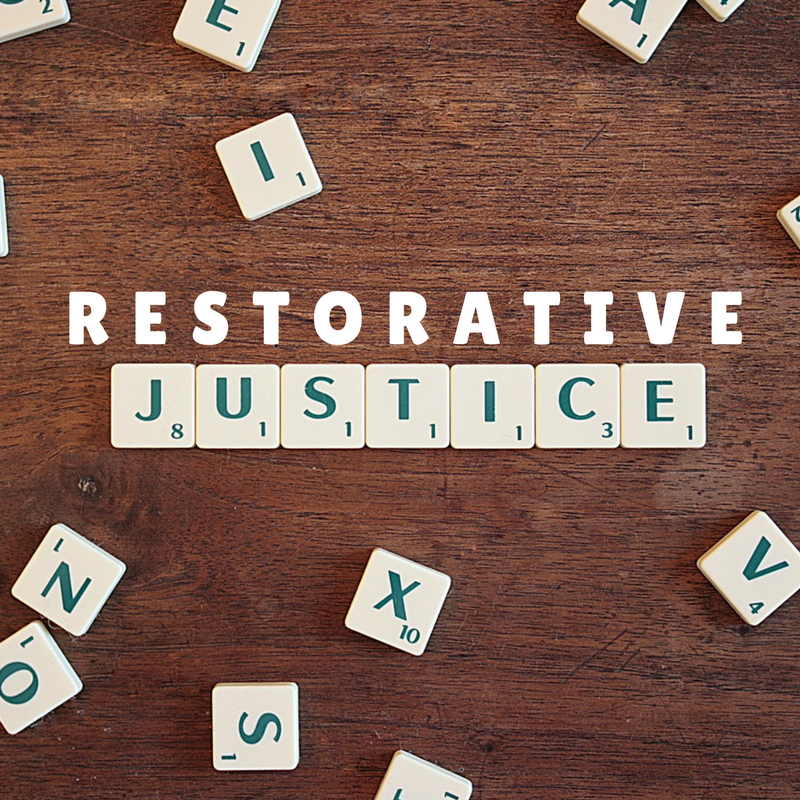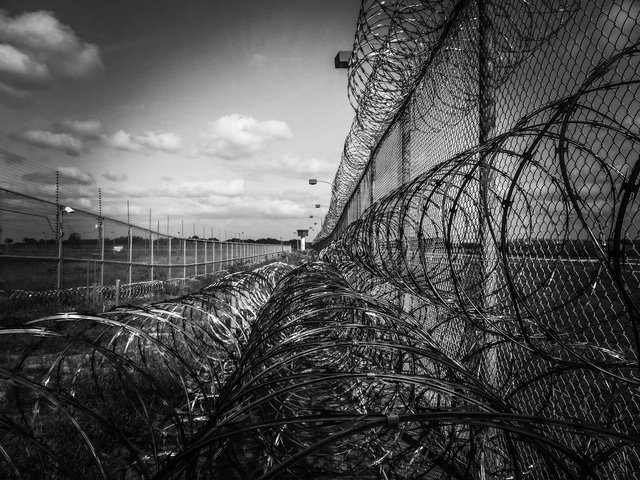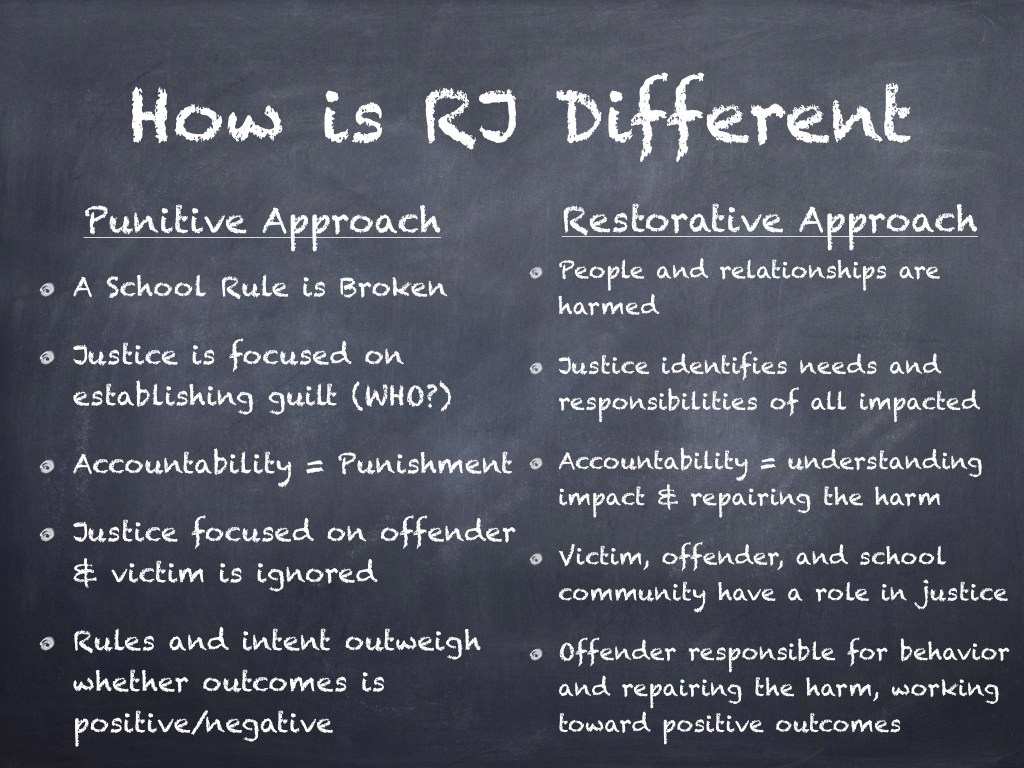It’s no secret that America has a problem with imprisoning its citizens. In 2017 it was estimated that there were about 2.3 million people being held in prisons, jails, and other correctional facilities. This number is more than any other country in the entire world. Although the numbers are declining, it isn’t happening fast enough.

According to The Hamilton Project, the United States spent more than $265 billion on total “criminal justice” in 2012, with state and local governments footing the majority of the costs. Those numbers are not sustainable as most jails, prisons, and other correctional facilities are severely overcrowded.
Under Trump’s budget there have been cuts; however, the cuts are deceiving as they don’t account for the increases in funding to private prisons.
For the most part, the justice system in the United States is considered Retributive Justice. Retributive Justice focuses on punishing offenders rather than rehabilitating them. The number of repeat offenders under the current system is an indication of the limited success that this approach has had.

A more promising solution is called, Restorative Justice. By definition Restorative Justice is, “a system of criminal justice that focuses on the rehabilitation of offenders through reconciliation with victims and the community at large.”
Although Restorative Justice isn’t new, the concept has only recently gained popularity in the United States. In the past it has mainly been used through small church or private programs; however, those programs have primarily worked with juveniles and crimes involving minor offenses.
The most significant barriers for Restorative Justice have been media, politics, and sentencing laws that are hard to work with. The mainstream media in America keeps a focus on crime, which makes it appear more prevalent than statistics indicate. Additionally, politicians use the “crime card” when running for office, which in turn makes the issue a political issue. When an issue becomes a political issue, it is never a good thing for progress. Furthermore, sentencing laws (minimum mandatory sentencing, etc.) makes it harder to work through restorative justice.
The main principles of Restorative Justice are to repair, encounter, and transform.
Repair - criminal behavior causes a ripple of harm, Restorative Justice works to repair that harm on every level.
Encounter - Through this principle, those most affected by the crime participate in resolving it.
Transform - Through these principles, Restorative Justice transforms people and communities.
Using these principles, the offender works to correct the harm caused to the victim and the community. This is done in a variety of ways, but most commonly through peace circles and conferencing.
Restorative justice views crime as more than breaking the law – it also causes harm to people, relationships, and the community. So a just response must address those harms as well as the wrongdoing. If the parties are willing, the best way to do this is to help them meet to discuss those harms and how to bring about resolution. Other approaches are available if they are unable or unwilling to meet. Sometimes those meetings lead to transformational changes in their lives.
Restorative Justice programs have been implemented in at least 35 states and city-level efforts are underway in a number of communities across the U.S. However, law enforcement departments mostly rely on non-profits to perform Restorative Justice sessions, instead of through the state.
Illinois has created a program called, “Illinois Balanced And Restorative Justice” or IBARJ for short. From their website:
“Several methods of practicing restorative justice can be found in Illinois. Peacemaking Circles, Restorative Conferences, Victim Impact Panels and Peer Juries are the most common. Outcomes from all practices include increased satisfaction from those harmed by criminal behavior, higher rates of completion of consequences, and lower rates of recidivism as well as a greater sense of safety in communities.”

States like Vermont and Colorado have passed laws that encourage the use of Restorative Justice practices both in schools and in the community. Schools that have restorative justice programs report less absenteeism and lower dropout rates. The community benefits in a number of ways. Not only do some Restorative Justice programs work to repair the communities in which the crimes happen, but there are also other impacts as well, such as reduced costs to taxpayers (less repeat offenders reduces costs).
Examples
1. "Two teenagers walked into McGuckin Hardware in downtown Boulder, Colorado, grabbed a $600 power saw, and shoved it into a backpack, only to be apprehended by a security guard in the parking lot. Both teens were charged with theft. Then their paths diverged. One teen’s parents hired a high-priced Denver attorney to fight the charges in court, beginning a legal process that dragged on for months. The other opted for “restorative justice.” As part of that process, the second teen sat down with his parents, someone from the hardware store and a facilitator to talk about what he did and how each of the parties had been affected by it. After a few hours, the group came up with a plan for the teen to make amends: make good grades, meet weekly with a counselor and pay back his half of the stolen saw. “The whole encounter was very positive for him. He felt bad. He met with people from McGuckin. He moved on,” said Boulder district attorney Stan Garnett. “He didn’t spend time in prison and he didn’t spend time meeting other kids always coming in and out of the system. “The other kid whose parents hired the lawyer for him — it took months to get it adjudicated,” Garnett said. “They spend all this time filing motions and arguing whether we violated the Fourth Amendment by searching the backpack instead of thinking, ‘Should I have stolen a power saw?’ "
2. "I was in a pretty bad place when it happened. I had just had my first daughter about 5 months prior, and her father was away at Navy boot camp. I am not proud of it, but I was still partying pretty hard at that time. I missed my husband and I was dealing with the stress of being a new mom. I had just been at a party and I was on my way home and got turned around. I was too drunk to realize where I was, and I turned into a cul-de-sac in a neighborhood going way to fast. I didn’t come out of the turn fast enough and ran straight into a new Mercedes Benz sedan. I was in a small Honda Civic and my car was pretty much destroyed. The glass in the windshield of my car had been shattered in the accident. I must have hit my head on the windshield and passed out when it happened because I woke up disoriented and covered in my own blood. I got out of the car and started wandering, looking for help. There was a grocery store nearby, and I found myself in the middle of the store, lost, drunk, and covered in my own blood. I later on found out that I had wondered across a busy highway, and that I was lucky that I wasn’t hit by a car. The store manager found me and called the police. Officer John Winship arrived at the store, although I don’t remember that first meeting with him.Two days later I was at home in the evening feeding my daughter, Annie, when I heard a knock at the front door. I went to answer it and found myself face to face with Officer Winship. As I said, I didn’t remember our first meeting, but I invited him in. We sat down at the kitchen table, and he began to tell me the story of what happened that night. He then pulled out a recorder and played me the recording of my own voice on that night as I answered questions about what had happened. He explained that if I hadn’t told the truth the outcome could have been much worse. He also explained that he had come there that night to arrest me for a felony, but that if he did that, it would be very difficult for me to go to get into college. Annie, although young, was present as he explained this. He then explained what he knew about the Restorative Justice program, and then went on to ask me if I would be willing to participate in the process. He actually was not familiar with all of the details in referring a case, and had to call another officer to make sure we did it correctly. The deal was that if I chose to go through the Restorative Justice process and completed the items in the contract on time, my actions would not go on a criminal record, and I would have a chance to go to school. I took the opportunity that Officer Winship presented that day, and my life has totally changed because of it. Part of the restorative justice process requires that both the victim and the offender in a case have a support person present during the process. I asked my Mom to be my support person, and she accepted. During the process, each person is asked to share how the actions of the offender impacted them. I expressed that I felt ashamed and embarrassed, as well as lucky to be alive. My mom shared that she felt ashamed and that it was difficult to trust me anymore. There were members of the community there who talked about how unsafe it feels to live in a place where this type of drunk driving accident can occur. I worked with everyone in the group to come up with a list of contract items I could complete that would help repair harms to everyone impacted by my actions, including myself. Some of the actions included cooking, cleaning, and community service. Of all of the people involved, I was the luckiest, because as a result of the process and listening to how my actions had impacted the lives of others, I realized that I had hit rock bottom. I got help and completely stopped drinking. Later on I went on to enroll in nursing school. It has been six year, and next year I will graduate with a nursing degree. I plan to practice in the Denver area. I just want to thank officer Winship and let him know that this was a life changing experience, and to let him know his choice that day changed my life. To anyone who is lucky enough to be referred to the Restorative Justice program because of their actions take the opportunity. You get a second chance to realize what you have done. After you turn 18, you don’t always get chances like this. Longmont Community Justice Partnership is an amazing program. I am clean and sober, finishing nursing school, and own my own home. If I didn't do the LCJP program those wouldn't have happened."

As you can see, Restorative Justice changes the focus from punishment/revenge based justice to justice that restores people, community, and relationships. Restorative Justice also reduces prison population and allows for true rehabilitation as opposed to the accepted Retributive Justice system. And, although it isn’t a complete solution to the problem, it can play a part in keeping non-violent (and even violent in some situations) offenders out of jail/prison.
Do you think Restorative Justice on a large scale can work in the United States? Please let me know your thoughts in the comments.
Sources:
https://en.wikipedia.org/wiki/Restorative_justice
www.restorativejustice.org/
http://www.hamiltonproject.org/charts/corrections_spending_per_capita
https://www.pbs.org/newshour/nation/states-consider-restorative-justice-alternative-mass-incarceration
https://scholarship.law.duke.edu/cgi/viewcontent.cgi?article=1631&context=faculty_scholarship
https://www.albany.edu/scj/jcjpc/vol10is2/dowler.html
http://www.ibarj.org/
http://vtcourtdiversion.org/about/restorative-justice-principles/
https://www.rjcolorado.org/
http://www.community-mediation.org/restorative-justice/
It's nice to meet you. Me liked Your article on such a very serious and a deep subject. This is really a big problem, but not only in your country. I have recently read such statistics, and my country appears to be the next number on the list. So you touched on a very relevant topic. Thank You!
Downvoting a post can decrease pending rewards and make it less visible. Common reasons:
Submit
Very brave to share your story, I applaud you. I also live in Colorado, and have experianced restorative justice. Unfortunately I didn't get the opportunity until after I had served 7 years in prison and was on parole. I was given the opportunity to actually meet with the victims of my crimes, make reparations, and attempt to lessen some of the trauma that my actions had caused. It was a dramatically moving and healing process for all involved. I wish that restorative justice would be used more offten as it truly is a benefit to both offender and victim. Thank you for opening this topic.
Downvoting a post can decrease pending rewards and make it less visible. Common reasons:
Submit
Hi Edgar,
Thanks for commenting. The examples given above aren't my personal story. They are from the sources cited.
I first became aware of restorative justice several years back by stumbling across an article where it was being used in Longmont, CO. It has become more accepted since then.
Thank you so much for sharing your experience. I'm glad that you had a positive experience with restorative justice. I believe that programs like this are the only way to truly heal...both for the offender and the victim. Like you, I want to see it used more. And, I feel that a part of that is just educating people about it's existence and that there is another way.
Downvoting a post can decrease pending rewards and make it less visible. Common reasons:
Submit
Very nice work and thinking
Downvoting a post can decrease pending rewards and make it less visible. Common reasons:
Submit
Thank you! I'm glad that you liked it. :)
Downvoting a post can decrease pending rewards and make it less visible. Common reasons:
Submit
This is such a good idea. I have not heard of this type of mediation before. It makes sense, perhaps not in every case but certainly in a lot of instances it would work very well. The victim and the assailent both have a greater understanding of each other’s circumstances. Thank you for your post. 🐓
Downvoting a post can decrease pending rewards and make it less visible. Common reasons:
Submit
I'm glad that you agree. When you think of the simplicity of it, it becomes surprising that more people haven't heard of it. But, as stated in the article, it has mostly been used through non-profits and schools.
I think what it really comes down to is empathy. And using this type of justice definitely allows one to feel empathy for another person when they otherwise wouldn't. It's never easy to look at someone who you know that you have hurt/wronged. I'm sure that's why there aren't as many repeat offenders with restorative justice programs. I realize that it wouldn't work in all cases, but I'd love to see it used more when appropriate.
Thanks for commenting!
Downvoting a post can decrease pending rewards and make it less visible. Common reasons:
Submit